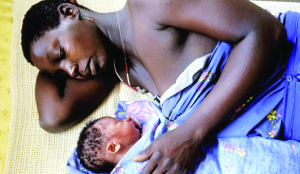By CHRISTINE MWAABA –
IT IS baffling to note that while there are many instruments in place for the protection of women’s rights and women living in rural areas are still denied the right to negotiate for protected sex with partners.
This is even when women are sure of their spouses having multiple sex partners.
Some women in the rural areas struggle to make their own decision on sexual and reproductive matters.
A number of women particularly in rural areas cannot refuse unprotected sex due to cultural customs they have to put up with.
Thus issues surrounding sexuality and reproduction have remained a private and thorny matter in some parts of Eastern Province.
Rabecca Mugala of Hoya Zone Lundazi in Eastern Province narrated her story to this author of how she is unable to confer with her husband on having protected sex even after knowing that her husband has other sexual partners.
Demanding protected sex is a culturally-sensitive topic and unacceptable to men in her village.
“It is controversial to ask for protected sex from my husband and at the same time am faced with the issue of not offending him as it is a cultural issue” she said.
Demanding protected sex is very difficult for most women in the area because they are cultural implications attached to the request, a situation that leads to downplaying the rights of women as far as women’s reproductive life is concerned.
This archaic practise denies the woman the right to negotiate for protected sex since it is the man who calls the shots in all these instances.For instance, if she insists on the use of condom before sex, her husband interprets it as an act of infidelity.
“My husband cannot allow it if I asked that we wear condoms especially when I know that he is having sex with someone else. and if I asked, my husband will take offence and sexually abuse me or even rape me” she said.
Due to this agonising situation she opted to give in her husband’s demands by giving in to unprotected sex.
She said a number of women in her village including herself do not have the right to decide or demand for protected sex despite knowing too well that their husbands have multiple partners or are in a polygamous marriage.
Dorothy Mwale a marriage counsellor of Katete’s Chiboya area says, women are scared to open up about sexual matters as they are labelled promiscuous or prostitutes by their spouses.
Mostly women in the area who approach her for marriage counselling are vulnerable as they are forced to subscribe to tribal authorities who do not favour women‘s rights.
Ms Mwale says many women are at the mercy of existing norms regarding their social rights that forbid women to say no to unprotected sex.
“There is little or no information and communication between partners. Cultural norms have made it difficult for women to deny their partners sex or to negotiate for protected sex” she said.
Helda Phiri, a midwife at Katete Urban Health Centre says Power and unequal gender relations between men and women and the cultural silence surrounding sexual habits in general, are causes of concern to the general health of women.
Ms Phiri says Safe and protected sex in this context refers to the use of condoms by partners.
And the demand for protected sex was very crucial in the fight against HIV/AIDS and other sexually transmitted diseases.
She noted that Reproductive and sexual situation of women is now under threat due to the HIV/AIDS pandemic with serious health consequences for women.
Particularly Women in rural areas have no control over their bodies and to decide freely and responsibly on matters related to their sexuality, including sexual and reproductive health.
She said despite the fact that women have heard just enough about these diseases to be worried about the dangers of unprotected sex,
they still continue to put their lives at risk in order to embrace retrogressive traditional customs.
She said the hapless women were usually powerless in the face of what they know, assume, or suspect to be infidelity since they still cannot negotiate the use of condoms to their spouses.
Human Rights commissioner Director Florence Chibwesha says Gender inequality is a major driving force behind the lack of reproductive and sexual rights of women.
She said another implication of this situation is that the gender role of women precludes them from making decisions connected with their fertility.
Sexual rights are a crucial piece of the human rights framework and an important basis for moving a domestic reproductive justice.
Ms Chibwesha says Sexual rights refer to the human rights associated with sexuality in all its aspects.
Under the current sexual rights it can be precariously grounded in pre-existing human rights, she said.
She added that a number of other socio-cultural factors have also enhanced women’s vulnerability to sexually transmitted infections.
For example, poverty, illiteracy and unemployment, are among many factors that increase women’s sexual vulnerability.
Sexual and reproductive problems of women involve full participation and social inclusion of women’s voices.
Empowering women personally, socially and collectively within their marriages thereby improving the economic status of women in rural communities, will enable them participate in the society and make independent choices.
In addition, there is the need to raise awareness among sexual partners in ways in which their sexual behaviours can place them and their families at the risk of HIV infection.







